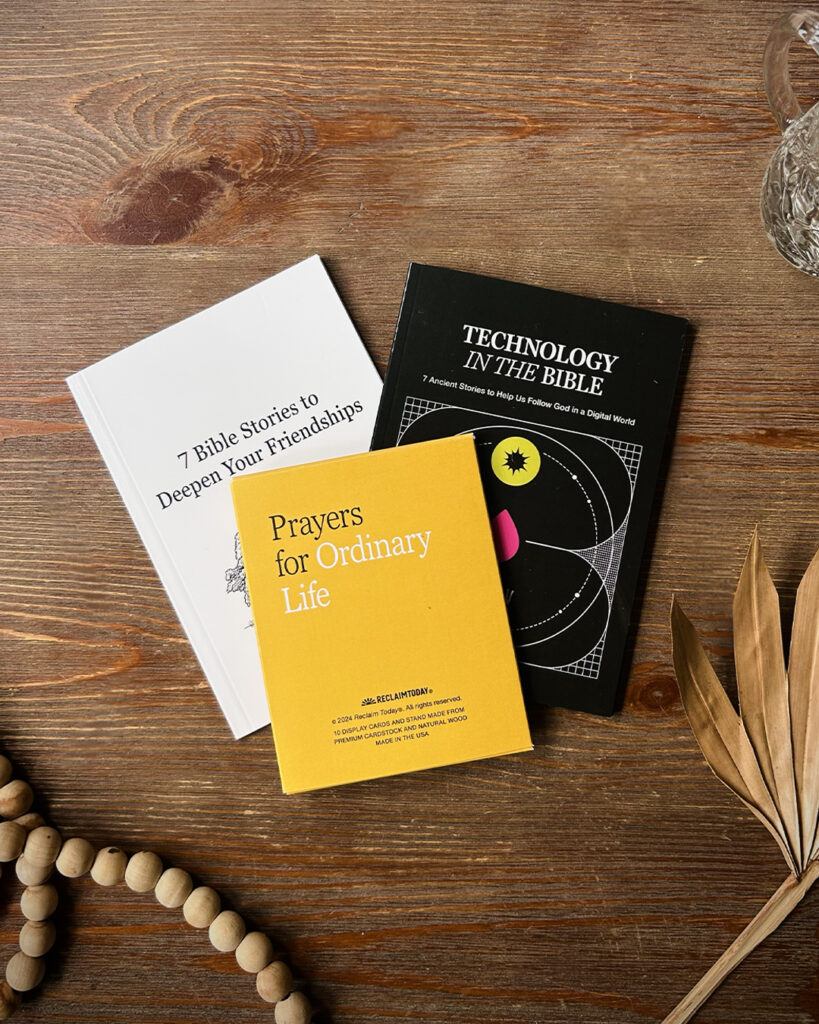It started with such a small thing. One day, I couldn’t find the pop socket that attaches to the back of my phone. I looked everywhere, multiple times. I couldn’t find it anywhere. I prayed what seemed like a simple but legitimate prayer: Lord, please help me find this silly thing. But it didn’t turn up, and I still couldn’t find it, no matter how hard I looked. Didn’t Jesus care about the smallest details of our lives? Didn’t He want us to come to Him for help, no matter how big or small our request? I couldn’t understand why He wouldn’t just let this little item appear somewhere.
I’m sure the seed of doubt was planted well before I lost my pop socket. But Satan definitely used that experience to crack open the door to my growing doubt issue.
I talked to God and let Him know how I was feeling. I began asking– why is it so hard to just know you’re there? I remember getting so frustrated after hearing a podcast one day where the author said we can talk to God all day – whether we are washing dishes or driving the car, we can pray and talk to God anytime. I thought to myself, “How silly do I look, praying all day to God, when he never talks back to me? He obviously knows I’m here and that I exist, so why can’t I just have some confirmation that HE exists?!”
So, I started asking God to send me some supernatural sign to confirm he’s there. Something I couldn’t confuse with my mind’s own voice or a coincidence. Well, that didn’t happen, either. Now I was getting really frustrated. First, he wouldn’t help me find a small object that I’d lost, and now he wouldn’t give me just one sign, so I’d know without a doubt he’s there!
I found myself doubting – even big, fundamental concepts: if there are so many other religions out there, where did they come from if Christianity is correct? How do I know I’ve got it right? Does God really exist? How do I know the voices that I think are God aren’t really just from my own mind?
People can make a convincing argument about pretty much anything these days. I didn’t feel comfortable seeking out answers from other people. I also didn’t fully trust myself to find these answers. When I was praying to God about these things, I started to feel like maybe God was saying, “You don’t turn to yourself – you turn to me.”
The more I thought about it, the more I realized that my beliefs needed a solid foundation. I’m not a research scientist or theologian with in-depth knowledge, so I had to build that foundation from somewhere, whether it was science, the Bible, or something else. But I wanted to build my foundation on him.
Despite my doubts, I continued to read the Bible. As I read, God came alongside me to reveal a few keys that helped me build a foundation of faith.
1. Remember What God Has Already Done
In Psalm 77, David expressed a lot of the same feelings I had when in doubt. He lamented, “I cry out to God; yes, I shout. Oh, that God would listen to me!… All night long I prayed, with hands lifted toward heaven, but my soul was not comforted.” In verse seven David asked, “Has the Lord rejected me forever? Will he never again be kind to me? Is his unfailing love gone forever? Have his promises permanently failed? Has God forgotten to be gracious?” (NLT).
David seemed to really need God and was upset when God wasn’t responding to him. Reading this beginning, I became interested to see what happened with David in the rest of the psalm. In verse 11, David said, “But then I recall all you have done, O Lord; I remember your wonderful deeds of long ago. They are constantly in my thoughts.” This has become a scripture that I cling to when having doubts. God may have me in a wilderness season right now, but I can remember the unmistakable, wonderful deeds he has already done. I can ponder the supernatural, spiritual experiences I have already had.
In verse 16, David remembered when God parted the Red Sea despite rain and lightning crashing down. I remember the Spirit’s pull when I first came to know Jesus, and the “peace that passes understanding” he’s given me that was unmistakably God. When we are in a season of doubt, remember the wonderful things God has already done!
2. Know That You’re Not the Only One
Doubting God is nothing new. There are several times in the New Testament when even the disciples doubted Jesus – while he was right there with them! Ironically, in this age, I find myself doubting and asking for miracles and supernatural experiences in order to believe. But in Jesus’s time on earth, his miracles and supernatural works often CAUSED disbelief!
One example comes from Matthew 14:28-31. When the disciples saw Jesus walking on water, Peter cried out, “Lord, if it’s really you, tell me to come to you, walking on water.” “Yes, come,” Jesus said. Jesus didn’t rebuke Peter for asking for confirmation. He gave him what he asked for. We know that Peter did climb over the side of the boat and began walking on water! At this point, I wonder, What else would you need in order to believe, Peter? Even so, he started to doubt and began to sink.
This can be a good lesson for our own faith. Even if God does come through and give us signs, miracles, and supernatural experiences, if we don’t combine that with our own faith, we will sink. Like Peter, we can get too into our own heads. God does His part as a supernatural, omnipresent, omnipotent God. But we must do our part as humans and have faith in Him.
Thomas is another example of a disciple who doubted Jesus. In John 20, when Thomas heard that the other disciples had seen Jesus, he replied to them that he wouldn’t believe it unless he saw the wounds in Jesus’s hands and side. A week later, the Bible says that Thomas got his chance. He was with the other disciples when Jesus was suddenly among them. Jesus told Thomas to feel the wounds in his side and showed the wounds in his hands. THEN Thomas believed and said, “My Lord and my God!” Jesus responded, “You believe because you have seen me. Blessed are those who believe without seeing me” (v. 29). Once again, when one of Jesus’s own disciples doubted, Jesus didn’t condemn him, yet gave Thomas the evidence he needed to believe.
Jesus makes an important point, though, to Thomas. While Jesus does provide evidence, he also remarks that it’s better to believe without seeing evidence by having faith. While it is evident that Jesus doesn’t condemn us for our doubts, he does reward great faith.
3. Faith Can Exist Alongside Doubt
In Mark 5, we learn about the woman who suffered from constant bleeding. In verse 28, she said, “If I can just touch his robe, I will be healed.” Once she touched Jesus’s robe, her condition was healed immediately. When Jesus realized someone had been healed, he asked the crowd who touched him. The woman trembled at the realization of what happened (v. 29). However, when she confessed that it’d been her, Jesus wasn’t mad. He told her, “Daughter, your faith has made you well. Go in peace. Your suffering is over.”
Faith is always an important part of my journey with doubt. I’ve had previous struggles with doubt and disbelief. After I pursued God, he did come through for me supernaturally, giving me an unexplainable, “peace that passes understanding” (Philippians 4:6).
But, in this most recent time of doubting, God hasn’t provided that proof– that one big experience– like Jesus did for the disciples. Over several weeks, I’ve sensed God telling me in a still, small voice that I’m a more mature Christian now than I was back then. I’ve sensed him saying, “Your faith is stronger now– you need to put your faith into practice now with your doubts.” This really opened my eyes to what faith really means. For me at least, it means holding on to belief in something without present, physical evidence. It is trusting God’s word and building on past experiences to draw close to God.
These stories from the Bible give very important lessons– that we aren’t condemned for having doubts, but also that faith truly pleases God and produces great blessings. The Bible gives us valuable tools to use when doubt starts to creep in: remember what God has already done, remember we aren’t alone in our thoughts, and remember that faith is the key to closeness with God, even when we don’t understand or feel his presence.


